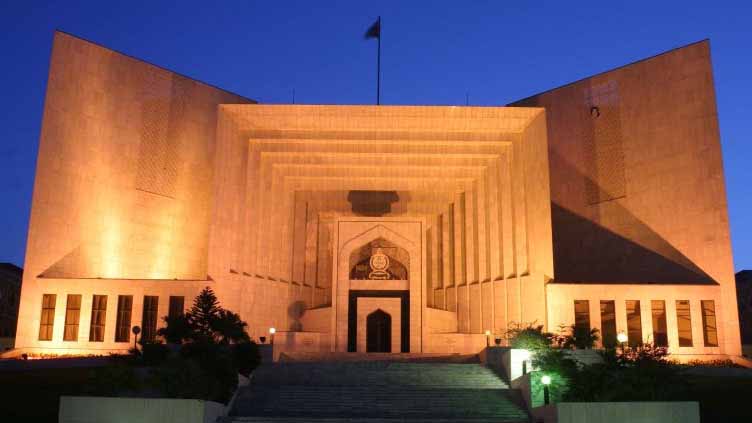Judicial approval mandatory at four stages of judge's transfer: SC

Pakistan
Siddiqi further argued that seniority is built over decades,
ISLAMABAD (Dunya News) – The Supreme Court remarked on Monday that judicial approval was mandatory at four stages of a judge’s transfer process.
During the hearing of a constitutional case related to the transfer of judges, constitutional questions regarding judicial independence, seniority, and constitutional articles were raised.
The hearing was conducted by a five-member constitutional bench, headed by Justice Muhammad Ali Mazhar.
Lawyer Faisal Siddiqi presented arguments, while Attorney General Mansoor Usman Awan will continue his arguments on Tuesday.
Faisal Siddiqi argued that the Islamabad High Court was established under Article 175 of the Constitution, and that the law regarding judicial appointments pertains only to the provinces.
Therefore, he said, transfers of judges to the Islamabad High Court were not possible under this framework. Even if a judge is transferred, the transfer cannot be considered permanent, and upon return, there is no need to retake the oath.
At this point, Justice Muhammad Ali Mazhar inquired whether Article 200 had become ineffective following the enforcement of Article 175A.
Faisal Siddiqi responded that the current transfer system undermined the powers of the Judicial Commission, which is against the spirit of the constitution.
Justice Shakeel Ahmed remarked that if there were a unified seniority list of judges across the country, many disputes could be resolved.
Faisal Siddiqi agreed, stating that a joint seniority list would make the implications of judge transfers clear to all.
Siddiqi further argued that seniority is built over decades, and altering this list overnight through executive powers is an authoritarian act.
Explaining the transfer process, Justice Muhammad Ali Mazhar stated that it involves four stages: the chief justice of the relevant high court, the chief justice of the receiving high court, the judge being transferred, and the chief justice of Pakistan. If any one of these parties refuses, the transfer cannot take place.
He added that if all of this were in the hands of the executive, it would be a different matter. But here, the approval of four judicial forums was essential.
Faisal Siddiqi told the court that the current law had been manipulated in bad faith and that the judiciary had been kept in the dark on the sensitive matter of seniority.
Subsequently, the Supreme Court adjourned the hearing until Tuesday after the completion of Faisal Siddiqi's arguments.


